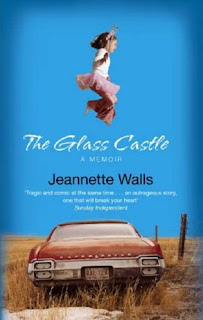The Return of the Native
Blurb:
Tempestous Eustacia Vye passes her days dreaming of passionate love and the escape it may bring from the small community of Egdon Heath. Hearing that Clym Yeobright is to return from Paris, she sets her heart on marrying him, believing that through him she can leave rural life and find fulfilment elsewhere. But she is to be disappointed, for Clym has dreams of his own, and they have little in common with Eustacia’s. Their unhappy marriage causes havoc in the lives of those close to them, in particular Damon Wildeve, Eustacia’s former lover, Clym’s mother and his cousin Thomasin. The Return of the Native illustrates the tragic potential of romantic illusion and how its protagonists fail to recognize their opportunities to control their own destinies.
Review:
To be loved to madness–such was her great desire. Love was to her the one cordial which could drive away the eating loneliness of her days. And she seemed to long for the abstraction called passionate love more than for any particular lover.
Honestly, I was quite intimidated by this book. I knew Thomas Hardy as the author of Tess of the D'Urbervilles and everyone I had heard talking about it seemed to think it was not only terrifyingly boring but also quite stupid. That is with the exception of one professor who is a great Thomas Hardy fan and who, ultimately, influenced me most to finally read this (not immediately, but if I hadn't heard him talking about Hardy I probably wouldn't have picked up a book of his until I had to for some reason or other). That being said: if Tess is anything like The Return of the Native I definitely need to read it.
Whenever I read a classic and I end up liking it I'm filled with equal parts joy and dread. A good classic is, truly, a terrific reading experience; I start to care about details I usually don't really think about when reading contemporary books, I always learn to appreciate language and irony a little bit more, etc. There is a lot to gain from reading classics, in my opinion that is. Yet, classics are also quite a hassle to read. They are usually slow-paced, often they're quite long and you need to pay more attention to the narrative in order to appreciate it. What I'm trying to say is: Thomas Hardy is now on my mental list of authors I want to read more books from, which is both nice and also a little frightening.
But I haven't even talked about The Return of the Native, yet! Oh boy, this certainly was an interesting read. At first I was really confused because I was waiting for Eustacia to be introduced and Clym to arrive and all these things I was told of in the blurb but nothing was happening. If I had to guess I'd say it took me about 40 minutes until Eustacia was properly introduced and at that point I was quite sure that I'd end up having very neutral feelings for this book. But with Eustacia comes the plot and the plot is a slow-burning, long-con kind of affair. I got sucked in more and more without even realising. I still thought I was waiting for the actual plot to arrive when I was already in the middle of it without even realizing (this sounds bad but it isn't, I promise!). At the end, I looked back and I couldn't help but feeling extremely satisfied with the progression of events, the build-up, and the pay-off.
Moreover, the characters were quite brilliantly constructed. Hardy managed to make me understand every possible point of view of the story (except this one bit near the end but even then I had to admit that I was biased by my omniscient knowledge of the actual events) by illustrating the characters beautifully. Even more interestingly; although I was aware that there would have been really easy fixes for the tragedy to be avoided I never felt like the progression of events was anything but 'natural'. You know how you sometimes read something and you're like this is so stupid, they should just have XYZ and then everything would have been fine! Come on, people, just XYZ! This doesn't make any sense! well, let me tell you this book never strayed into that territory. I see how it could have done exactly that but I never felt like the progression of events were unreasonable or avoidable. And, ultimately, I think this makes one of the strongest cases for The Return of the Native. I've been so engrossed in the story and the characters and all the rest that this felt like the only natural story to be produced in this setting.
Do I even make any sense to you?
A blaze of love and extinction was better than a lantern glimmer of the same which should last long years.
Rating:
Hah, usually I already write down my ratings and this time I was like "thank god I already thought about this because I have no idea what I would rate this book" only to realize that past-me had decided not to rate it yet because I couldn't think of an adequate rating. Good job, me.
Eeehhhhh
You know what, I'm going to give this 4 out of 5 stars for now. I don't think it's going to go below that if I ever do decide to adjust the rating but it could, potentially, eventually be raised. I really am unsure about this.
Eeehhhhh
You know what, I'm going to give this 4 out of 5 stars for now. I don't think it's going to go below that if I ever do decide to adjust the rating but it could, potentially, eventually be raised. I really am unsure about this.
Details:
Name: The Return of the Native
Deutscher Titel: Auf verschlungenen Pfaden
Author: Thomas Hardy
Publisher: Penguin
Pages: 496




Comments
Post a Comment